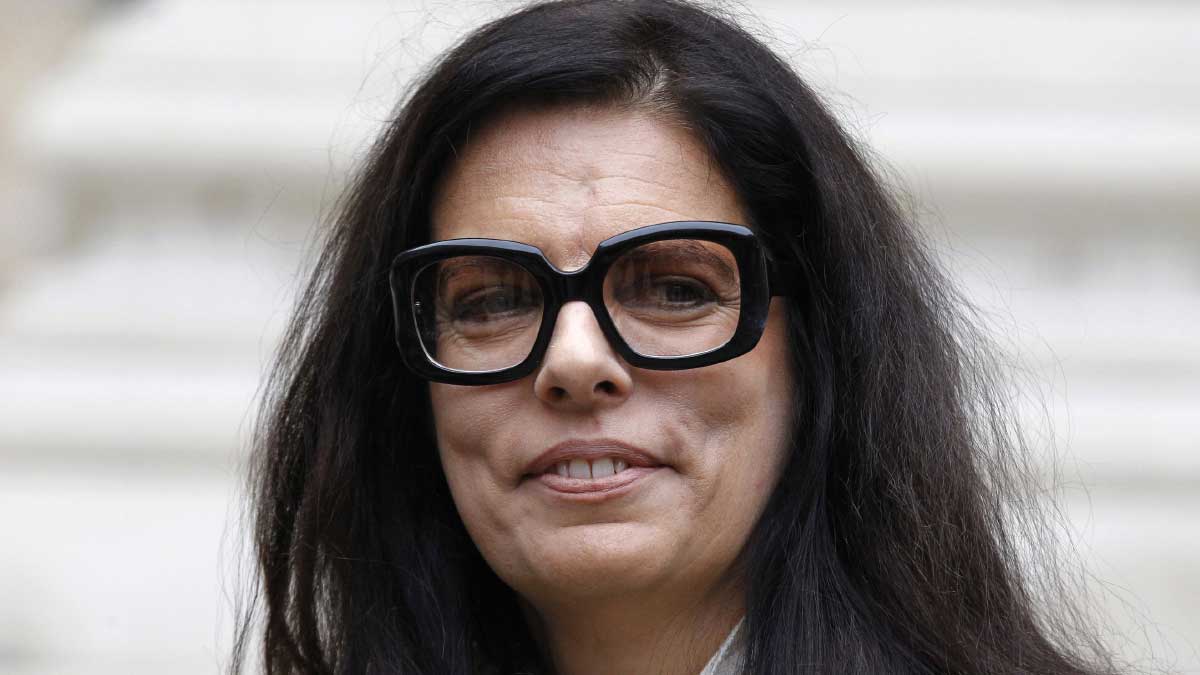- Home
- Billionaires
- Investing Newsletters
- 193CC 1000
- Article Layout 2
- Article Layout 3
- Article Layout 4
- Article Layout 5
- Article Layout 6
- Article Layout 7
- Article Layout 8
- Article Layout 9
- Article Layout 10
- Article Layout 11
- Article Layout 12
- Article Layout 13
- Article Layout 14
- Article Sidebar
- Post Format
- pages
- Archive Layouts
- Post Gallery
- Post Video Background
- Post Review
- Sponsored Post
- Leadership
- Business
- Money
- Small Business
- Innovation
- Shop
Recent Posts
Meyers Regains Title of World’s Richest Woman After Market Rally

Francoise Bettencourt Meyers, the granddaughter of L’Oreal’s founder, has reclaimed her status as the world’s richest woman, overtaking Walmart heir Alice Walton. This significant shift occurred on Thursday, fueled by a notable surge in European luxury stocks linked to an anticipated economic stimulus package from China. Meyers’ estimated net worth skyrocketed to $93.1 billion, while Walton’s wealth decreased to $90.4 billion, marking the end of Walton’s brief tenure as the wealthiest woman globally.
Meyers’ rise can be attributed to a dramatic increase in L’Oreal’s stock price, which jumped nearly 7% to close at approximately $408.65 on Thursday. This price point has not been seen since July, reflecting strong investor confidence and positive market sentiment towards luxury brands. In contrast, Walton experienced a $1.3 billion decline in her net worth as Walmart’s stock fell nearly 2%, closing at $79.92. This decline highlights the volatility of retail stocks in response to broader economic trends.
The rally in L’Oreal’s shares is particularly significant as the company has a substantial presence in China, its second-largest market. The positive momentum in the luxury sector followed news that China would introduce a multi-hundred-billion-dollar economic stimulus package aimed at revitalizing its economy. This announcement has sparked optimism among investors, particularly in European luxury stocks, which are often closely tied to the economic conditions in China.
The luxury sector responded robustly to the stimulus news, with shares of Cartier-owner Richemont rising more than 8%, and LVMH, the parent company of brands such as Louis Vuitton, witnessing a remarkable 10% increase, bringing its share price to $678.50. This recovery is noteworthy given that LVMH shares had recently experienced a slump, dropping as low as $591.90 earlier in September. Bernard Arnault, the CEO of LVMH, also saw his net worth increase by 9.4%, reaching an estimated $192.7 billion. He now stands just behind Facebook founder Mark Zuckerberg, who is currently valued at $196.1 billion, making Arnault the fourth-wealthiest person globally.
Meyers’ financial ascent underscores her significant stake in L’Oreal. As of December 2023, she and her family collectively own 34.7% of the company’s stock. This substantial ownership is a testament to the longstanding legacy of the Bettencourt family in the beauty industry, and it positions Meyers favorably amidst the growing demand for luxury products.
The shift in rankings from Walton to Meyers also reflects the fluctuating nature of wealth among the world’s richest individuals. Walton had briefly claimed the title of the world’s richest woman just three weeks prior, after climbing the ranks to become the 18th richest person globally. This rise coincided with Walmart’s stock price increase of over 50% for the year, driven by strong sales and consumer demand. However, the recent downturn in Walmart’s stock highlights the inherent risks associated with retail investments, particularly in an environment marked by changing consumer behaviors and economic uncertainties.
The stimulus package from China, estimated to inject approximately $142 billion into state banks, aims to support the struggling real estate sector and alleviate financial pressures faced by local governments. This move is expected to have a significant impact on the broader economy, especially for companies like L’Oreal that are heavily exposed to the Chinese market. The potential for increased consumer spending in China, coupled with the government’s commitment to economic recovery, has generated renewed investor interest in luxury brands.
In summary, Francoise Bettencourt Meyers has reclaimed her position as the world’s richest woman following a surge in L’Oreal’s stock, driven by positive developments in the European luxury market linked to China’s economic stimulus measures. This development not only illustrates the volatility of wealth rankings among the ultra-rich but also underscores the interconnectedness of global markets and the significant influence of economic policy on stock performance. As luxury brands continue to thrive amidst changing economic landscapes, Meyers’ wealth trajectory will likely be closely monitored, particularly in the context of ongoing developments in the Chinese economy and its impact on global consumer behavior.
The remarkable fluctuations in wealth among individuals like Meyers and Walton remind us of the dynamic nature of financial markets and the power of economic policies to shape the fortunes of billionaires worldwide. As L’Oreal continues to navigate the complexities of the global market, Meyers’ leadership and vision will play a crucial role in sustaining the brand’s legacy and capitalizing on growth opportunities in the ever-evolving luxury sector.
Recent Posts
Categories
- 193cc Digital Assets2
- 5G1
- Aerospace & Defense46
- AI37
- Arts3
- Banking & Insurance11
- Big Data3
- Billionaires449
- Boats & Planes1
- Business328
- Careers13
- Cars & Bikes76
- CEO Network1
- CFO Network17
- CHRO Network1
- CIO Network1
- Cloud10
- CMO Network18
- Commercial Real Estate7
- Consultant1
- Consumer Tech180
- CxO1
- Cybersecurity68
- Dining1
- Diversity, Equity & Inclusion4
- Education7
- Energy8
- Enterprise Tech29
- Events11
- Fintech1
- Food & Drink2
- Franchises1
- Freelance1
- Future Of Work2
- Games141
- GIG1
- Healthcare78
- Hollywood & Entertainment186
- Houses1
- Innovation42
- Investing2
- Investing Newsletters4
- Leadership65
- Lifestyle11
- Manufacturing1
- Markets20
- Media193
- Mobile phone1
- Money13
- Personal Finance2
- Policy567
- Real Estate1
- Research6
- Retail1
- Retirement1
- Small Business1
- SportsMoney33
- Style & Beauty1
- Success Income1
- Taxes2
- Travel10
- Uncategorized8
- Vices1
- Watches & Jewelry2
- world's billionaires418
Related Articles
Tesla Recalls 700,000 Vehicles Over Tire Pressure Issue
Tesla has announced its latest recall of nearly 700,000 vehicles in the...
By 193cc Agency CouncilDecember 20, 2024MicroStrategy Stock Rallies on Nasdaq 100 News
Shares of MicroStrategy surged on Monday following the announcement that the company...
By 193cc Agency CouncilDecember 16, 2024Stanley Recalls Millions of Mugs After Burn Injuries
In a significant recall, Stanley, the well-known brand behind popular stainless steel...
By 193cc Agency CouncilDecember 12, 2024Adobe Shares Drop 12% After Lowering Revenue Outlook
Shares of Adobe experienced a significant drop of over 12% on Thursday,...
By 193cc Agency CouncilDecember 12, 2024















Leave a comment